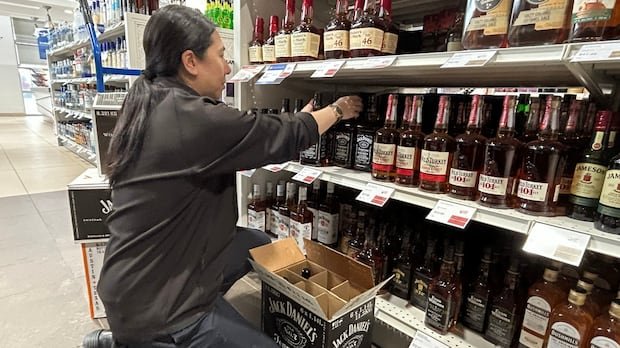American spirit exports to Canada experienced a sharp decline of 85% in the second quarter of 2025, a situation deemed concerning by the Distilled Spirits Council of the United States. This significant drop is attributed to consumers in key international markets seeking alternatives to American-made products due to ongoing trade tensions.
The latest report from the council revealed a substantial decrease in exports to Canada, with numbers also showing a decline of 29% to the U.K. and 23% to Japan. These countries, in addition to the European Union, collectively made up 70% of U.S. spirit exports in 2024. The council, representing producers of spirits like whisky, vodka, rum, and brandy, suggested that the shift may be a response to perceived unfair U.S. tariffs, leading consumers to support domestic industries or explore non-U.S. products.
CEO Chris Swonger expressed concern over the detrimental impact of trade tensions on U.S. spirit exports and called for a return to tariff-free trade with longstanding partners to sustain industry growth. Meanwhile, negotiations on tariff terms between Canadian and American officials are underway, as highlighted by Prime Minister Mark Carney.
The repercussions of the trade dispute were evident in the financial performance of major alcohol producers like Brown-Forman, whose sales to Canada dropped by 62% in the first fiscal quarter of 2026. The company’s CEO, Lawson Whiting, acknowledged the challenges posed by the trade conflict, noting that while non-U.S. brands showed growth, they could not offset the decline in U.S.-produced products.
Analysts, such as Robert Huish from Dalhousie University, anticipated the impact on Canadian shelves, particularly at major purchasers like LCBO and SAQ. The removal of American products from shelves led to a surge in sales of local products, with Nova Scotia witnessing notable increases in spirit and wine sales. The NSLC reported a boost in Canadian wine and whisky sales, highlighting a shift in consumer preferences towards locally produced goods.
Looking ahead, if a resolution is reached and American alcohol re-enters the market, Huish suggested that some Canadian consumers may continue to prioritize local products out of a sense of national loyalty and lingering sentiments from the trade dispute.


